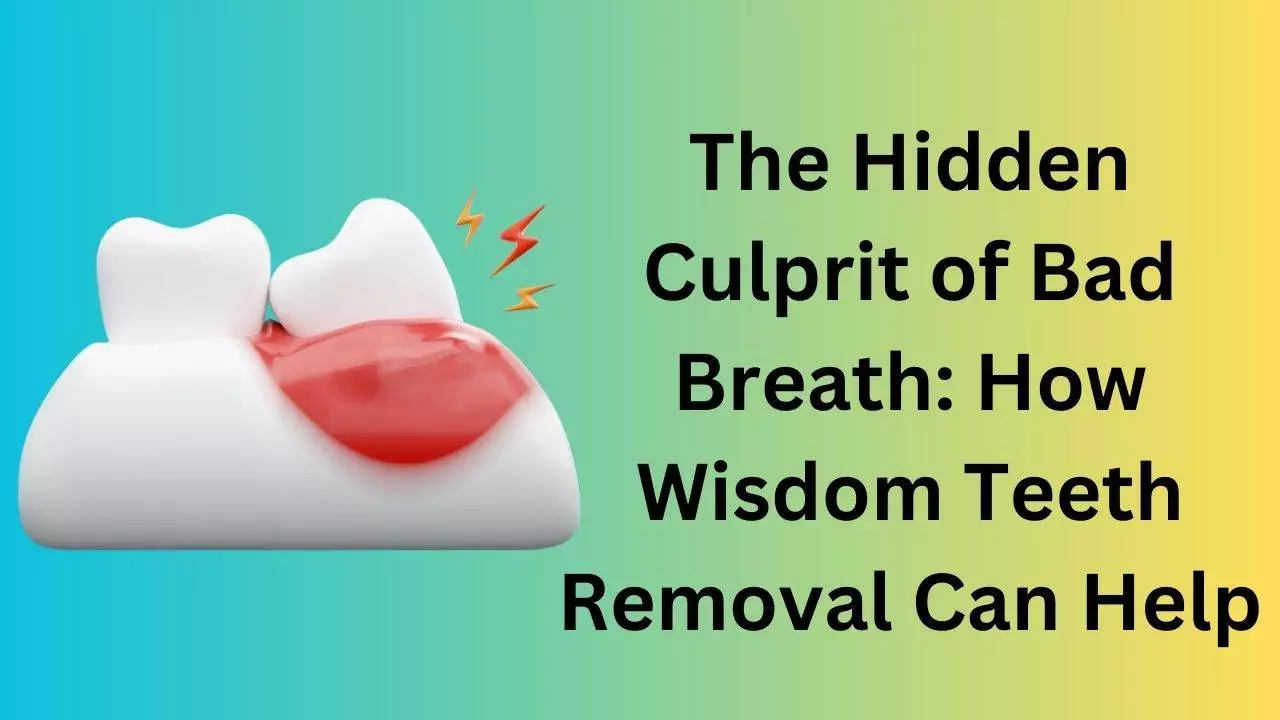
- What Causes Bad Breath?
- The Role of Wisdom Teeth in Bad Breath
- Why Wisdom Teeth Can Cause Bad Breath
- How Wisdom Teeth Removal Can Help
- The Benefits of Wisdom Teeth Removal for Bad Breath
- The Procedure for Wisdom Teeth Removal
- Recovery Time After Wisdom Teeth Removal
- Tips for Maintaining Good Oral Hygiene After Wisdom Teeth Removal
- Other Causes of Bad Breath and How to Address Them
- The Importance of Addressing Bad Breath and Seeking Professional Help
Bad breath, also known as halitosis, is a common problem that affects many people. It can be embarrassing and have a negative impact on one’s confidence and social interactions. In some cases, bad breath can also be a sign of an underlying health issue. Understanding the causes of bad breath and how to address them is essential for maintaining good oral hygiene and overall health.
What Causes Bad Breath?
There are several factors that can contribute to bad breath. Poor oral hygiene is one of the most common causes. When food particles and bacteria are not properly removed from the mouth through brushing and flossing, they can break down and release foul-smelling gases. Certain foods and drinks, such as garlic, onions, coffee, and alcohol, can also contribute to bad breath.
Smoking and tobacco use are another major cause of bad breath. Not only do these habits leave a strong odor in the mouth, but they also increase the risk of gum disease and other oral health problems that can lead to bad breath.
Medical conditions can also play a role in causing bad breath. Dry mouth, also known as xerostomia, occurs when there is a decrease in saliva production. Saliva helps to cleanse the mouth and remove bacteria, so a lack of saliva can lead to bad breath. Other conditions such as gum disease and sinus infections can also contribute to halitosis.
The Role of Wisdom Teeth in Bad Breath
Wisdom teeth, also known as third molars, typically emerge in the late teens or early twenties. These teeth can cause overcrowding and misalignment of the other teeth in the mouth, making it difficult to clean them properly. This can lead to an increased risk of gum disease and bad breath.
Why Wisdom Teeth Can Cause Bad Breath
Wisdom teeth can contribute to bad breath in several ways. First, their position at the back of the mouth makes them difficult to clean properly. Food particles and bacteria can become trapped around the wisdom teeth, leading to the buildup of plaque and the release of foul-smelling gases.
Additionally, wisdom teeth can cause inflammation and infection in the gums. This condition, known as pericoronitis, can lead to halitosis. The infection and inflammation can also spread to other areas of the mouth, increasing the risk of gum disease and tooth decay.
How Wisdom Teeth Removal Can Help
Removing wisdom teeth can eliminate the source of bad breath and improve oral hygiene. By removing these teeth, there is no longer a space for food particles and bacteria to become trapped, reducing the risk of plaque buildup and bad breath. Wisdom teeth removal can also prevent future dental problems such as gum disease and tooth decay.
The Benefits of Wisdom Teeth Removal for Bad Breath
There are several benefits to removing wisdom teeth for bad breath. First and foremost, it can result in fresher breath and improved confidence. Bad breath can be a source of embarrassment and self-consciousness, so eliminating it can have a positive impact on one’s overall well-being.
Removing wisdom teeth can also reduce the risk of gum disease and tooth decay. By eliminating the overcrowding and misalignment caused by these teeth, it becomes easier to clean the remaining teeth properly. This reduces the risk of plaque buildup, gum inflammation, and infection.
Furthermore, removing wisdom teeth can improve the alignment of the other teeth in the mouth. Overcrowding caused by wisdom teeth can lead to misalignment, which can affect bite function and overall oral health. By removing these teeth, it becomes easier to maintain proper alignment and prevent future dental problems.
The Procedure for Wisdom Teeth Removal
The procedure for wisdom teeth removal is typically done under local anesthesia or sedation to ensure patient comfort. The dentist or oral surgeon will make an incision in the gum tissue to access the wisdom teeth. In some cases, the teeth may need to be extracted in pieces to facilitate removal. Once the teeth are removed, the incision will be closed with stitches.
Recovery Time After Wisdom Teeth Removal
Recovery time after wisdom teeth removal can vary depending on the individual and the complexity of the procedure. Most people can expect to return to normal activities within a few days to a week. However, it is important to follow the dentist’s or oral surgeon’s instructions for aftercare to promote healing and minimize discomfort.
Pain and swelling are common after wisdom teeth removal, but these symptoms can be managed with medication and ice packs. It is also important to eat soft foods and avoid hard and crunchy foods for the first few days to prevent irritation or damage to the extraction site.
Tips for Maintaining Good Oral Hygiene After Wisdom Teeth Removal
After wisdom teeth removal, it is important to maintain good oral hygiene to promote healing and prevent infection. Here are some tips for maintaining oral hygiene after the procedure:
1. Avoid hard and crunchy foods for the first few days to prevent irritation or damage to the extraction site.
2. Rinse the mouth with saltwater several times a day to promote healing and reduce inflammation.
3. Brush and floss gently around the extraction site, being careful not to disturb any stitches or blood clots.
4. Use a soft-bristled toothbrush and a mild toothpaste to clean the remaining teeth.
5. Avoid smoking or using tobacco products, as they can delay healing and increase the risk of infection.
Other Causes of Bad Breath and How to Address Them
While wisdom teeth can contribute to bad breath, there are other causes that should also be addressed. If bad breath persists even after wisdom teeth removal, it may be necessary to address underlying medical conditions such as sinus infections or acid reflux. Treating these conditions can help alleviate bad breath.
Improving oral hygiene habits is also essential for preventing and addressing bad breath. This includes brushing and flossing regularly, using mouthwash, and cleaning the tongue. It is also important to visit the dentist regularly for professional cleanings and check-ups.
Avoiding foods and drinks that can cause bad breath, such as garlic, onions, coffee, and alcohol, can also help. Drinking plenty of water throughout the day can help keep the mouth hydrated and reduce the risk of dry mouth.
The Importance of Addressing Bad Breath and Seeking Professional Help
Bad breath is not only a social inconvenience but can also be a sign of underlying health issues. Ignoring bad breath can lead to more serious oral health problems such as gum disease and tooth decay. Wisdom teeth removal can be an effective solution for bad breath caused by overcrowding and gum disease.
Maintaining good oral hygiene and seeking professional help from a dentist or oral surgeon is essential for preventing and addressing bad breath. Regular dental check-ups, proper brushing and flossing techniques, and addressing any underlying medical conditions are all important steps in maintaining fresh breath and overall oral health.









